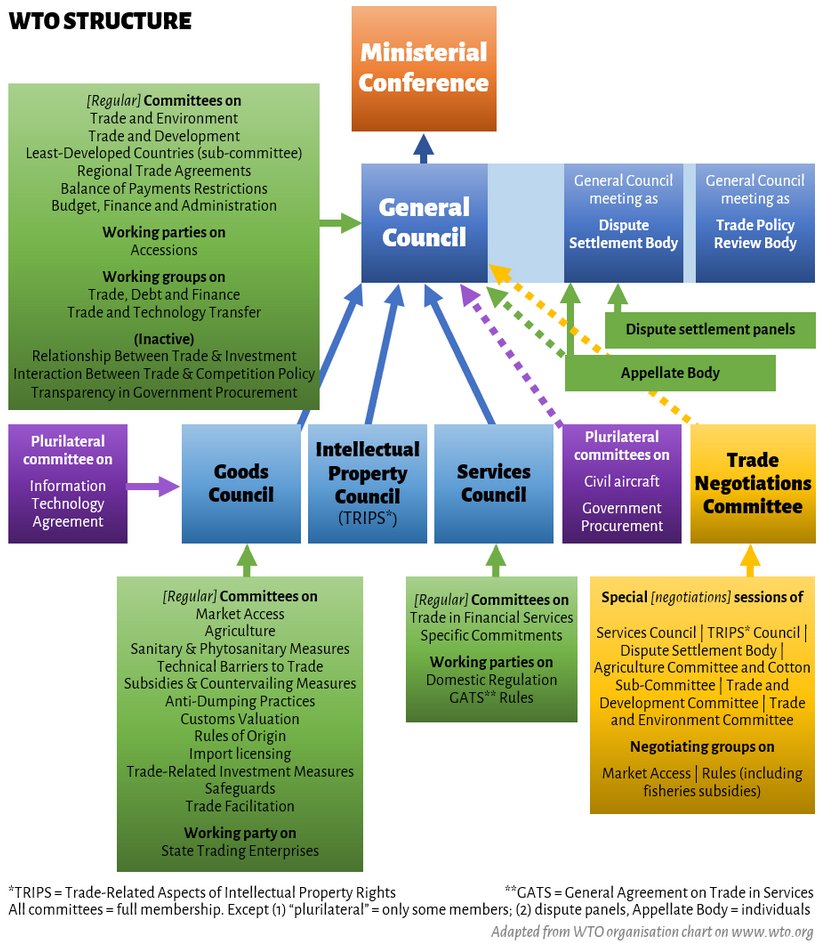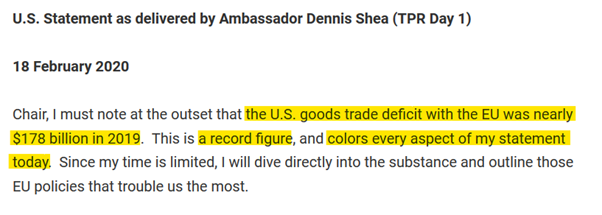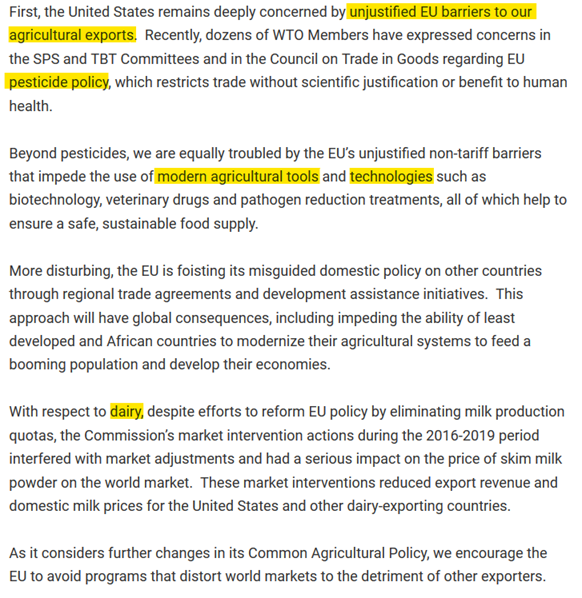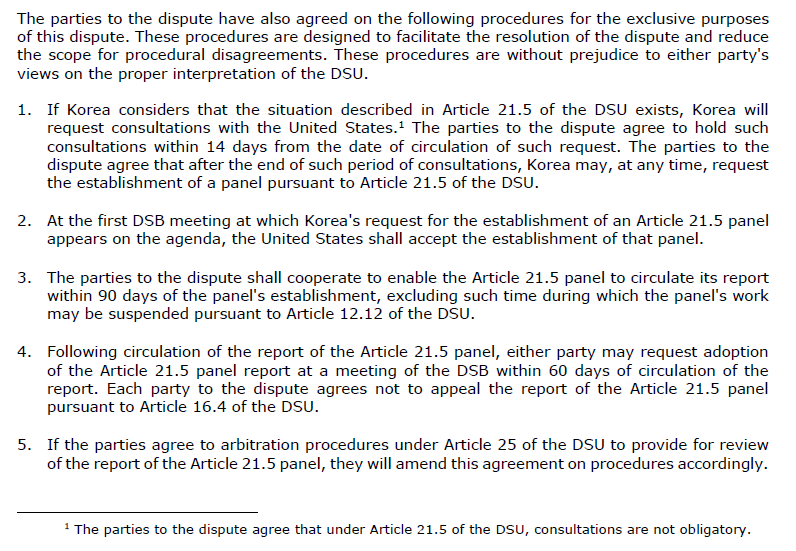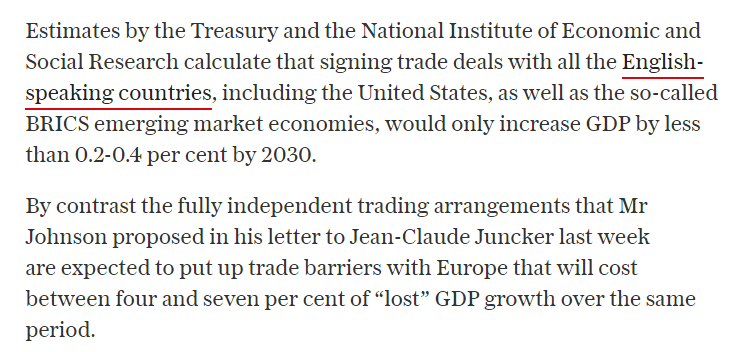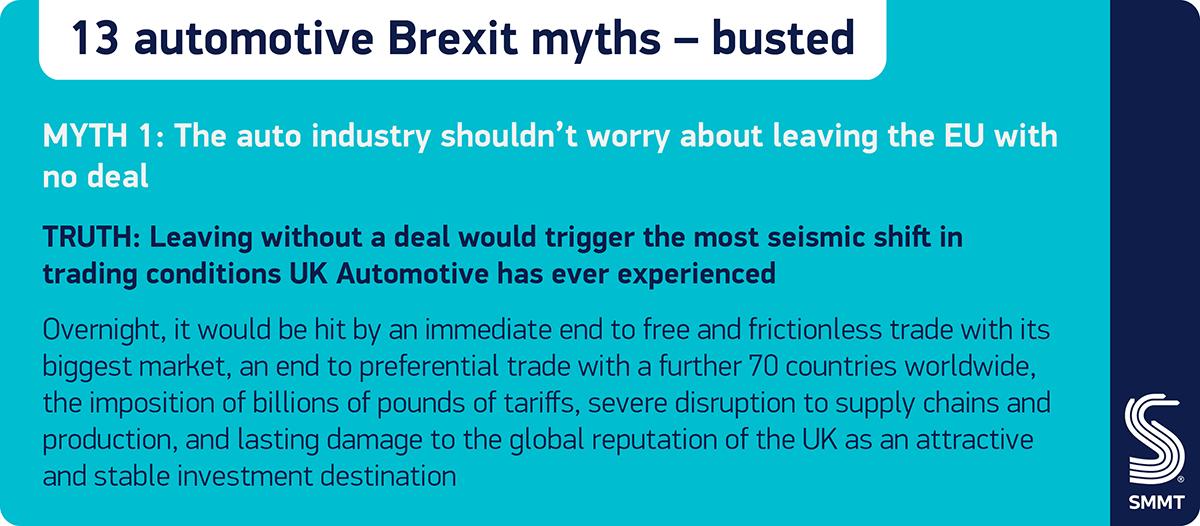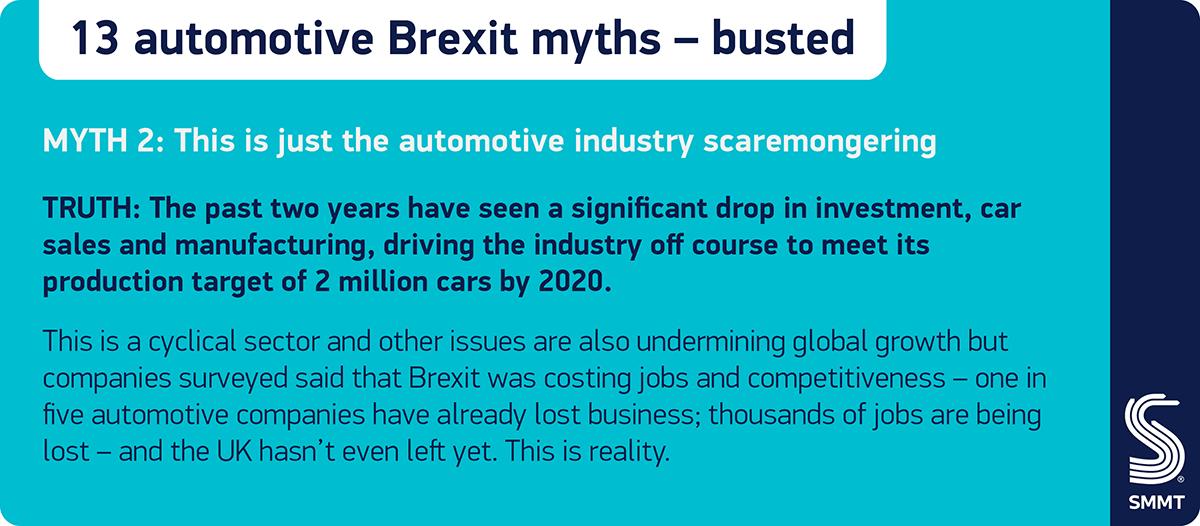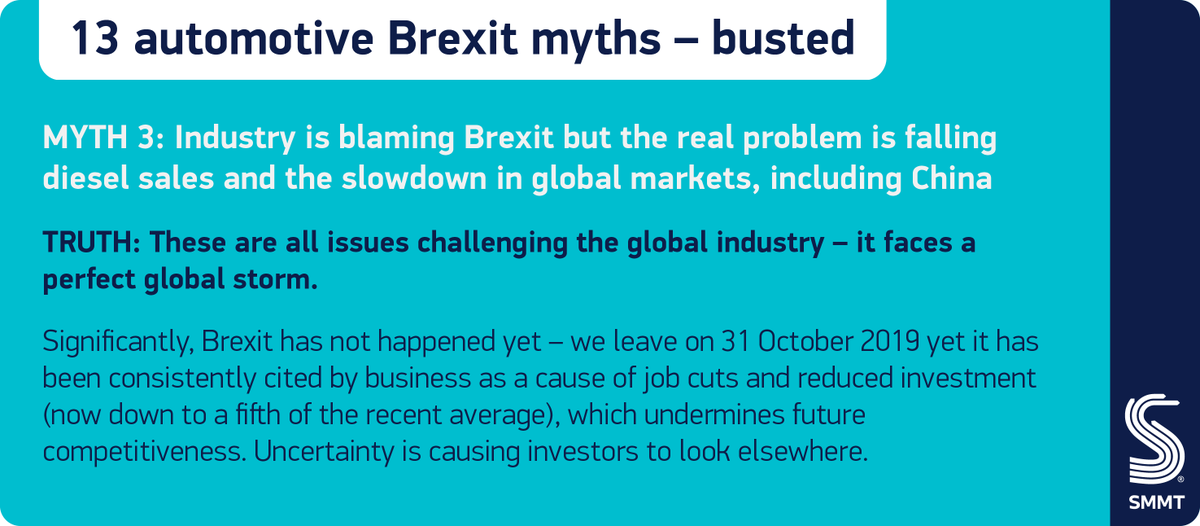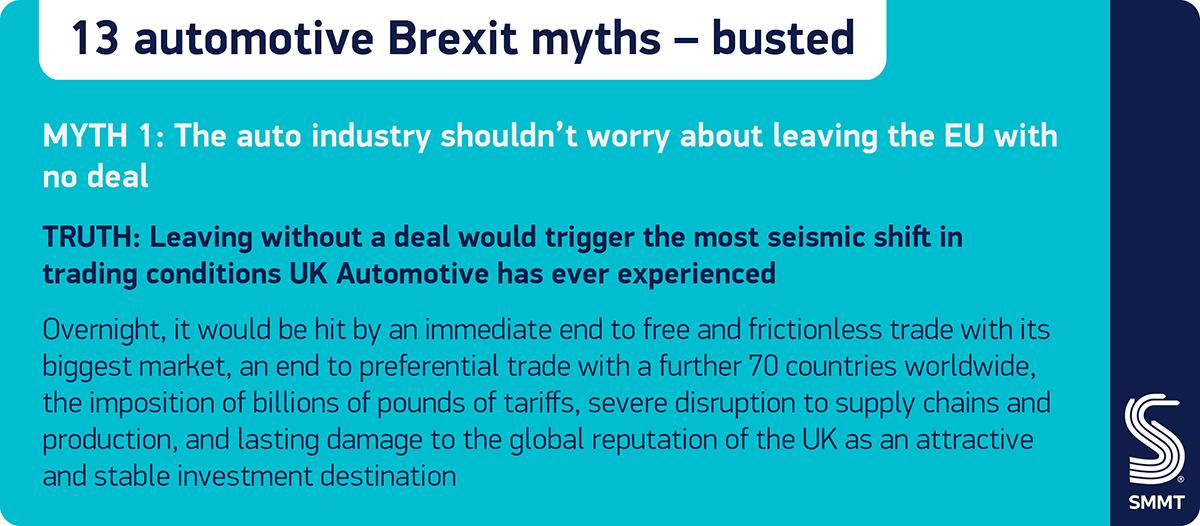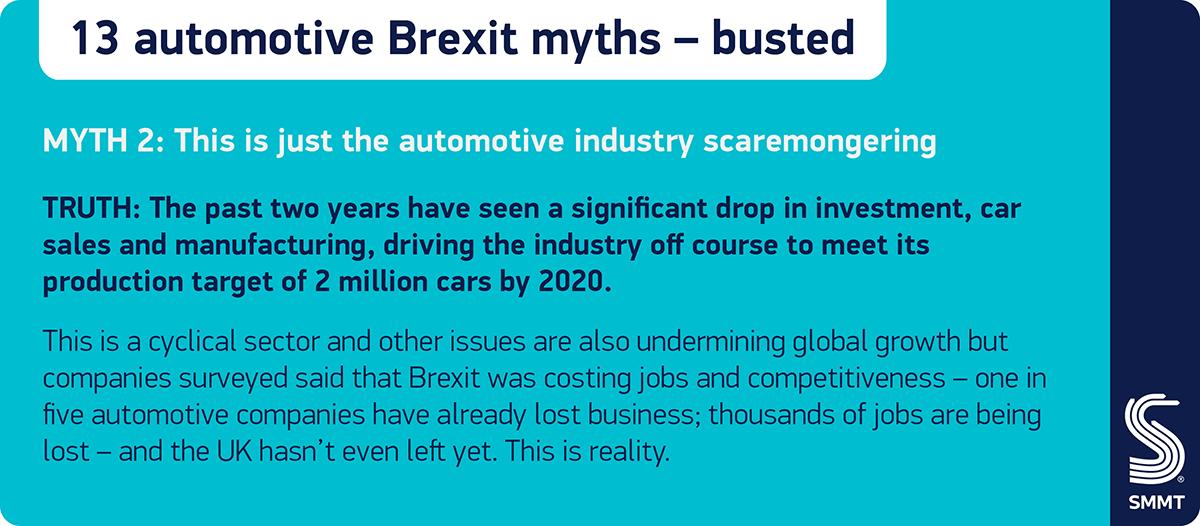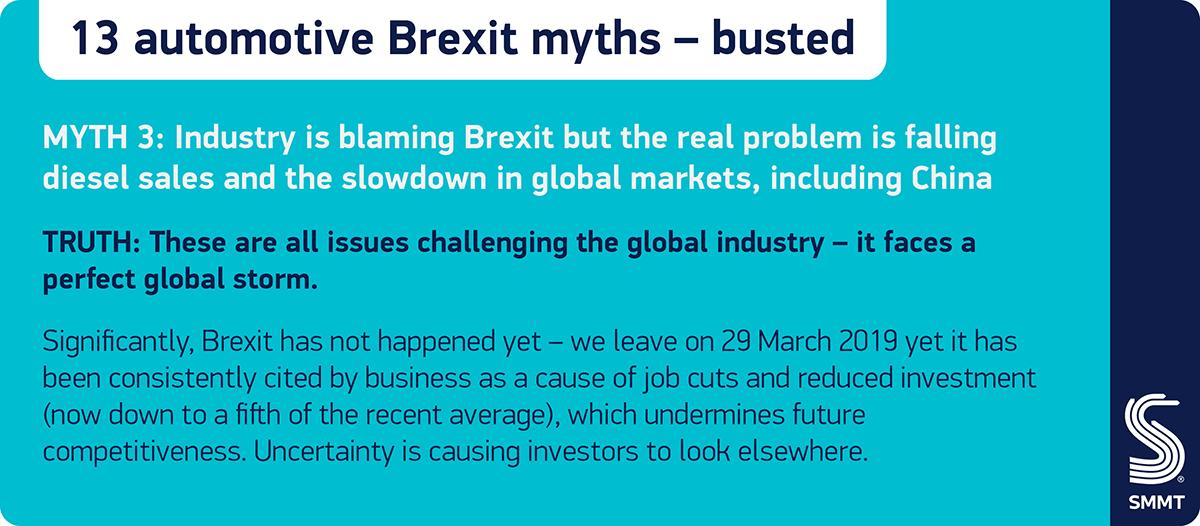The argument goes: Since a pro-Brexit view is the UK can fare just as well under WTO rules as it can as an EU member, it’s valid to compare the two.
But trying to understand the two through the lens of Brexit is misleading.
Why?
1/11
But it is misleading to compare the two as organisations.
2/11
ukandeu.ac.uk/brexit-the-lon…
Any UK-EU relationship is built on top of WTO rules.
3/11
tradebetablog.wordpress.com/2019/06/17/wto…
Because WTO “rules” are really *agreements* negotiated by governments—*only* by those governments
Once agreed, there’s nothing to force governments to write them into their laws, only possible retaliation by other members
tradebetablog.wordpress.com/2019/12/11/wto…
5/11
The EU lost the “beef hormone” case and continued to be in violation for several years even after the US imposed sanctions. Eventually, a negotiated solution was found, involving additional market access, but the ban on “hormone beef” remains even though it breaks WTO …"" src="/images/1px.png" data-src="https://pbs.twimg.com/media/EQaVfkXW4AA3k-c.png">
In the UK, those laws are scrutinised by the House of Commons.
Here’s why governments voluntarily comply with their WTO obligations: tradebetablog.wordpress.com/2019/12/11/wto…
6/11
(a) As a WTO member, the UK is *always* subject to WTO dispute settlement/Appellate Body.
Here’s a case the UK lost.
7/11
uktradeforum.net/2020/01/24/bbc…
There is no legal equivalent in WTO agreements. Members simply commit to comply. Nothing can force them to do so.
8/11
ukandeu.ac.uk/fact-figures/d…
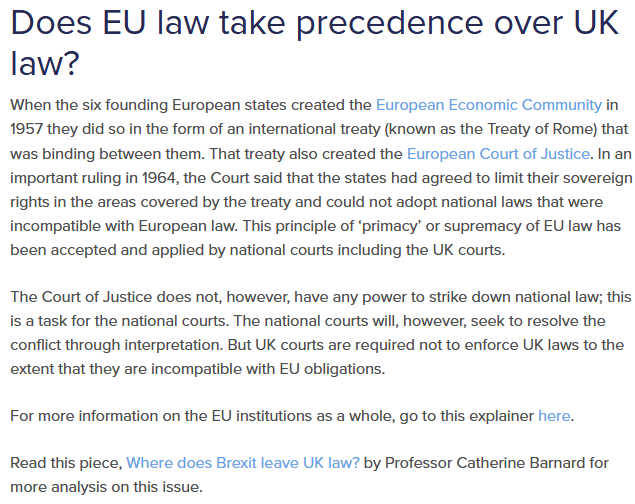
The EU is much more. It has a Commission with executive powers, a budget that is deeply involved in economic and other activities and a legislature.
The WTO has *none* of those.
9/11
tradebetablog.wordpress.com/2018/08/17/wha…
10/11
en.wikipedia.org/wiki/Instituti…
(Chart by 111Alleskönner - Own work, CC BY-SA 3.0 de, commons.wikimedia.org/w/index.php?cu…)
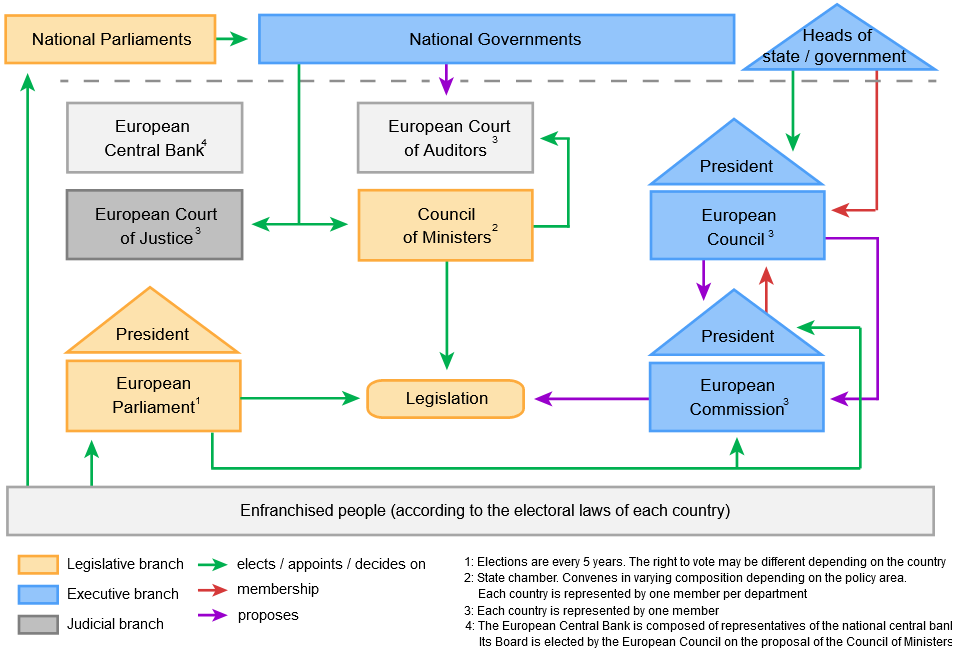
The EU and WTO charts are incomparable.
11/11
tradebetablog.files.wordpress.com/2018/08/wto-or…
